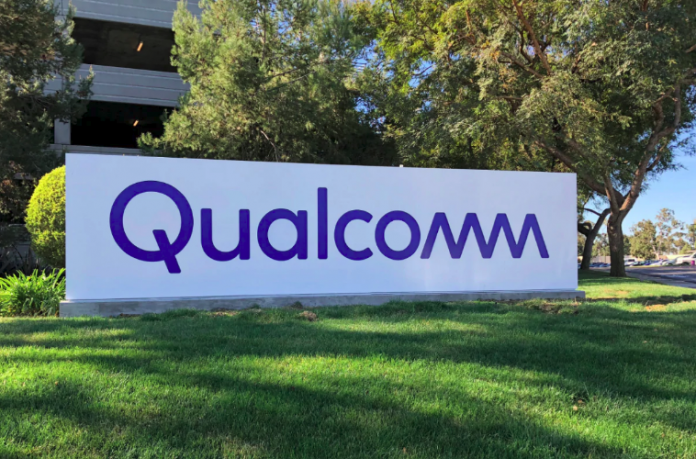Qualcomm on Tuesday launched the Snapdragon 720G, Snapdragon 662, and Snapdragon 460 as its three new 4G-supporting system-on-chip (SoC) models. But the chipmaker doesn’t want to limit its presence to the 4G market and is in plans to bring its 5G chips to the country. Last month, Qualcomm unveiled the Snapdragon 865 as its latest premium SoC supporting 5G networks. It also brought the Snapdragon 765 and Snapdragon 765G SoCs for mid-range smartphones. All these three 5G-capable chips are expected to make way to India through new smartphones.
Xiaomi India chief Manu Kumar Jain at Qualcomm’s event on Tuesday revealed that new smartphones based on the Snapdragon 865, Snapdragon 765, and Snapdragon 765G were coming soon to India. But Xiaomi won’t be the only player to bring its 5G phones based on the new Snapdragon chips.
Vice President of Product Management Kedar Kondap said that Qualcomm was already working with various manufacturers in addition to Xiaomi to bring its 5G chips-powered smartphones to India.
“We are focused on 5G as well as 4G,” said Kondap while speaking with Gadgets 360 at the sidelines of its event in New Delhi on Tuesday. “Because obviously [there is a] huge base in India — only 55 percent of the market today in India is on 4G, so there’s still 45 percent that’s not 4G yet. We want to make sure we drive that market and get more and more consumers on 4G because it drives a very good user experience. But in general, yes, we are very focussed on driving both 4G and 5G devices — even for India market.”
Kondap added that in the next 30 days, a lot more announcements pertaining to Snapdragon-powered 5G phones in India were likely to take place.
The Snapdragon 865 SoC in the new series has a discrete 5G modem, while the Snapdragon 765 and Snapdragon 765G SoCs have an integrated 5G modem. Kondap said that the distinct structure wouldn’t bring any performance-level changes to users and all chips were capable of supporting 5G networks across global markets, including India.
“It’s just the legacy of how we started 5G standards building, where we started the design process, but from a capability standpoint, you would see no difference. You’ll see all the same capabilities for any consumer,” he said.
Alongside having concrete plans towards supporting both 4G and 5G markets, Qualcomm has a gaming as its key focus. The San Diego, California-based company in April last year introduced the Snapdragon 730G as its first gaming-centric SoC. It has expanded that “G” series by bringing the Snapdragon 720G.
“We see gaming as something that is extremely important,” said Kondap. “There are lots of gaming-focused phones that are out in the market today. Moving forward, even a normal consumer sometimes wants the best gaming phone out there. So we wanted to make sure that there is an easy way for a user to identify when they’re buying a phone, what’s the best gaming phone out there. So that’s why we decided to use that naming moniker to make sure that they can relate to the best possible gaming device.”
The executive also mentioned that Qualcomm worked with the entire gaming ecosystem that includes game engine makers, game developers, and original equipment manufacturers (OEMs) to make sure that it would provide what mobile gamers deserve.
“If you’re a gamer, you’re playing a game for a long period of time,” said Kondap. “So you want to make sure that your phone doesn’t throttle, your phone doesn’t thermally change because it’s different in terms of framedrops or something. We focus a lot on gaming and the user feedback has been extremely positive.”
In addition to gaming, Qualcomm wants to support the growing world of artificial intelligence (AI) through its dedicated AI Engine that is featured on chips starting from as low as the Snapdragon 460 that is meant for affordable devices. The company is currently highlighting AI capabilities of its chips through marketing materials to stay ahead of the competition. But Kondap emphasised that Qualcomm didn’t use AI just as a marketing gimmick to convince OEMs.
“Consumers upload hundreds of pictures or thousands of pictures to social media,” he said. “And then when you upload it, there are so many things you want to do. You want to add emojis to it, you want to add lenses to it, you want to do so many things. So it’s the consumer that will want some of these capabilities. And I think the OEMs recognise that too. So it’s more than us pushing, it’s the consumers asking for some of these capabilities in every device price point.”
In 2018, companies such as Asus, HP, and Lenovo launched their “Always Connected PCs” based on Qualcomm Snapdragon chips. That move brought the chipmaker to the PC market. But it didn’t bring any change for the Indian consumers as manufacturers are yet to bring their Snapdragon-powered laptops to the market.
Nevertheless, Kondap has hinted at some development on that front. The executive told Gadgets 360 that some devices based on the newly launched Snapdragon 7C would debut in India soon. The chip is designed for affordable, entry-level Windows notebooks and featured on a couple of Microsoft machines just last week.
“You saw our partnerships — all the lead OEMs are partnering with us,” said Kondap. “And Microsoft has launched the device, it’s in the market today. And it’s a great experience… I think in India is becoming a focus market for that as well.”
The executive added that a lot of OEMs partners were very keen to bring their Snapdragon-powered laptops to the Indian market.
“I think some of them are just not ready to make announcements yet. The part of it is we just announced our 7C platform. So I think you’ll see more and more devices. I don’t have an exact timing when you see them, but definitely the interests, the conversations we have are very much focussed also around India,” he concluded.















